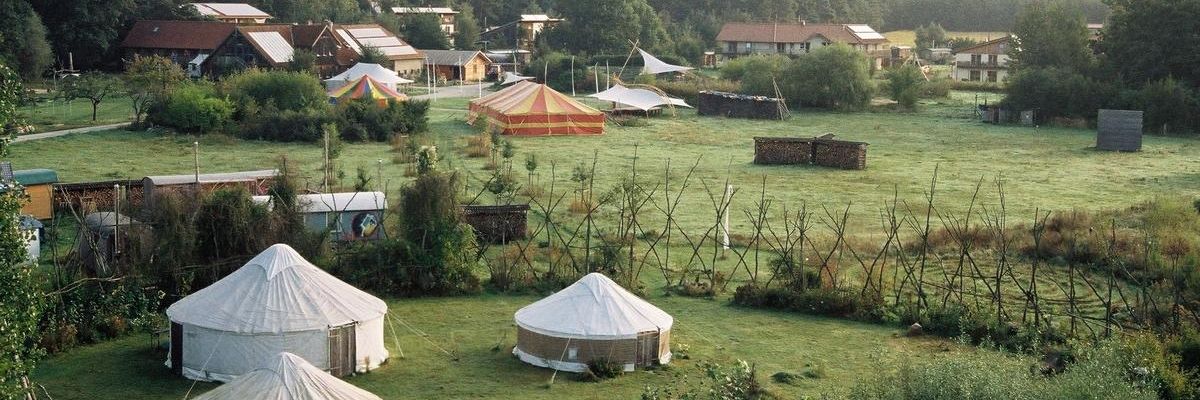The COVID-19 pandemic has exposed all of the inconvenient truths about life in the United States. It is no longer possible to hide the disconnect between myths of a great and advanced society with scenes of long lines for food pantries, millions of workers suddenly unemployed and a political system that gives a one-time maximum payment of $1,200 in a time of severe economic crisis. The already marginalized are at greatest risk of death as black and brown people constitute the majority of coronavirus victims in large cities like New York, Detroit and Milwaukee.
Before this health crisis struck there were people all over the country who understood the need for a solidarity economy. The concept is one which holds that every person is an economist in that they are all aware of their needs and those of their communities. Cooperation Humboldt in Humboldt County, northern California, is an example of the solidarity economy in action. Founded in 2017, Cooperation Humboldt was already incubating worker cooperatives, administering food sovereignty programs, advocating for public banking and participatory budgeting, and exploring housing cooperatives, an arts hub, and eco-villages--all before the pandemic arrived in the U.S.
The need for a post-capitalist system was already evident to anyone paying attention.
The need for a post-capitalist system was already evident to anyone paying attention. The group known colloquially as the 1%, the wealthiest people in the world, grow ever richer and more powerful. Republicans and democrats alike are committed to advocating for corporate interests and the desires of the already wealthy. George W. Bush passed supposedly temporary tax cuts for that group, but Barack Obama made the theft of public money permanent.
The masses of people are struggling and their dire needs were largely ignored until the shutdowns used to stop the COVID-19 virus created 22 million newly unemployed people who often lived from paycheck to paycheck. Cooperation Humboldt co-founder David Cobb explains that the country cannot return to what is considered "normal" even after the COVID-19 virus is successfully treated. "The brutality of late-stage capitalism and the ecological collapse were already creating the political crisis that was fermenting fascism. We are in an historic conjuncture moment. At Cooperation Humboldt we are not trying to save this dying system. We are working with joy and determination to create a new one."
The old norms make it acceptable for the unprecedented surge in unemployment claims to crash antiquated systems and prevent workers from getting the money they already earned. The United States has the dubious distinction of being particularly tight fisted and its bipartisan leadership pride themselves on giving the least amount of public support to those in need.
Cooperation Humboldt demonstrates that mutuality is an important aspect of human nature. It is important that people see a different way of life, one in which they can depend upon one another to share resources and make decisions in a truly democratic way. The scenes of the newly jobless are counter positioned with Cooperation Humboldt's plan to create four new worker owned cooperatives by the end of 2020. These worker coops will do more than provide jobs. This cluster will work together in true solidarity and will be an example of the new normal that must be created amidst the wreckage of a failed system.
COVID-19 brought down a house of cards that was already teetering. The federal minimum wage has not been increased in more than ten years. Banks live on a daily injection of $1 trillion loans from the federal reserve. The system had nothing to offer except increased austerity and a system dedicated to keeping people in lives of insecurity. The United States was the "shithole country," a failed state by any measure. It only needed a crisis to make what was hidden obvious to everyone.
Cooperation Humboldt is a model for ecological, economic and human sustainability. Volunteers plant trees and help convert front lawns into vegetable gardens. They also help one another travel to medical appointments, provide for child care or make masks for the so-called essential workers who went unprotected from COVID-19. They also have an intensive political education program that builds social cohesion and a shared analysis, and allows new leaders to emerge.
These personal connections prove that the acceptance of a competitive, zero sum game lifestyle is not inevitable. The solidarity economy shows that democratic decision making processes ranging from participatory budgeting to a requirement to join study groups focusing on fighting patriarchy, racism, imperialism and capitalism. The result is not charity, but true solidarity and a revolutionary ethos based on the commitment to "build a new community within the shell of the old."
If Cooperation Humboldt were to be replicated in the U.S. there would surely be less suffering in this time of crisis, and it could pave the way for a massive shift towards a different society. It is clear that the profit motive made COVID-19 more deadly than it would have in a publicly controlled health care system. Cooperative work would provide for greater pay equity and job security. While the focus should be on treating the sick and preventing the spread of illness, the federal government competes with states for life saving equipment and reserves its inadequate stimulus measures for the large corporations.
Post-COVID-19 America will be far more generous, productive and sustainable if the solidarity economy model is replicated. Cooperation Humboldt proves that humanity can be at the center of decision making and prevent the misery that has befallen every region of the country since the corona virus became a fixture in this country. A new world is not just possible. It is an absolute necessity.




